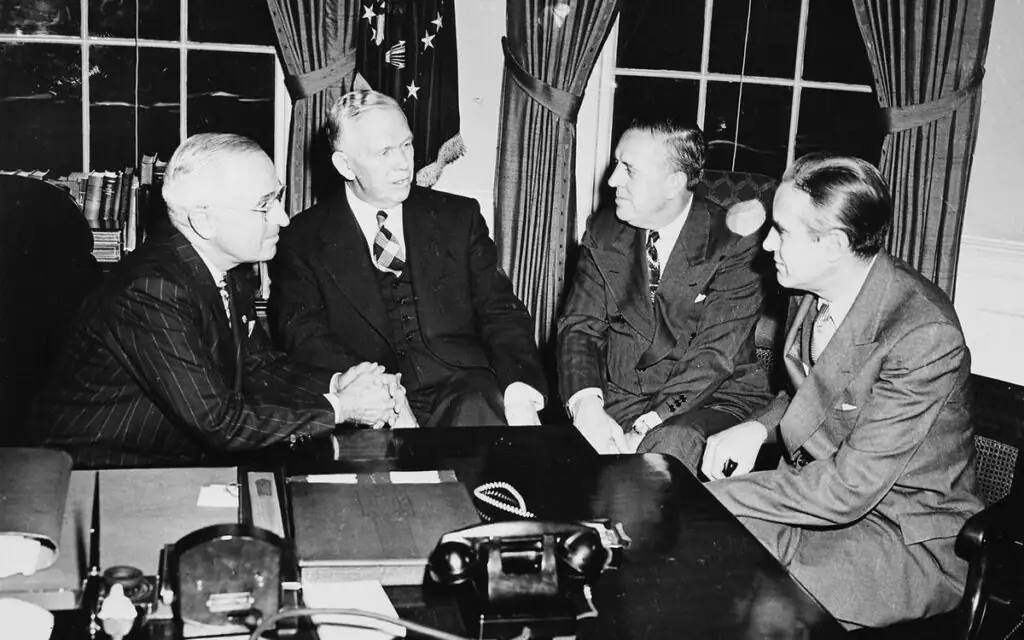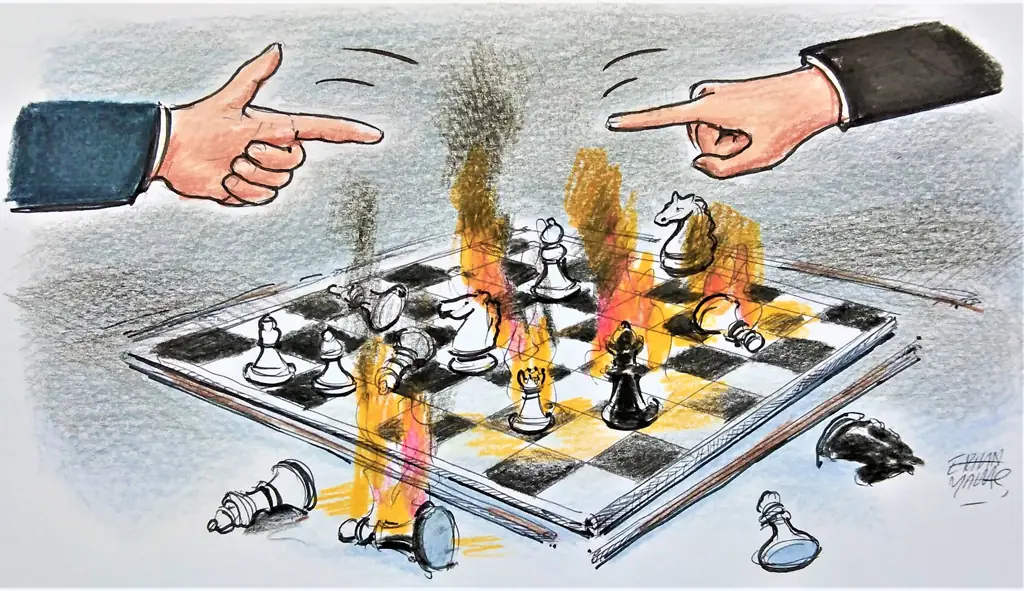The Cold War, a protracted and defining period of the 20th century, continues to intrigue historians and scholars alike. The question of who emerged victorious in this ideological and geopolitical standoff between the United States (USA) and the Soviet Union (USSR) is a subject of ongoing debate. In this article, we will explore the historical context, origins, and key events that shaped the outcome of the Cold War, as well as the complex factors that influenced its conclusion.

✅ AI Essay Writer ✅ AI Detector ✅ Plagchecker ✅ Paraphraser
✅ Summarizer ✅ Citation Generator
What Was the Cold War? Historical Context and Origins
The Cold War was born from the ashes of World War II, a conflict that left the world deeply divided along ideological lines. At its core, the Cold War pitted capitalism, championed by the USA, against communism, advocated by the USSR. These divergent ideologies set the stage for a decades-long confrontation.
The post-war world was characterized by a precarious geopolitical landscape. Europe, in particular, lay in ruins, and the power vacuum left by the fallen Axis powers presented an opportunity for competing ideologies to assert themselves. The USA and USSR emerged from World War II as superpowers, but their conflicting interests and ideologies sowed the seeds of discord.
Key events like the Yalta and Potsdam Conferences deepened mistrust between the two superpowers. The division of Germany into East and West Germany further underscored the growing divide. Early tensions and suspicions between the USA and USSR were palpable, foreshadowing the intensification of hostilities.
The Truman Doctrine and the Marshall Plan
The Truman Doctrine, a cornerstone of US foreign policy during the early years of the Cold War, played a pivotal role in shaping the conflict’s dynamics. Enunciated by President Harry S. Truman in 1947, this doctrine outlined America’s commitment to containing the spread of communism worldwide. It marked the official commencement of American involvement in the Cold War.

In conjunction with the Truman Doctrine, the USA implemented the Marshall Plan. This ambitious economic aid program aimed to rebuild war-torn Europe and prevent the spread of communism through financial assistance. The infusion of resources not only bolstered Europe’s recovery but also strained the Soviet Union’s finances.
These policies fundamentally altered the Cold War landscape, with the USA actively seeking to counter communism’s expansion. The Truman Doctrine and the Marshall Plan exemplified America’s determination to thwart the spread of communism and set the stage for a protracted conflict.
The Arms Race and the Space Race
One of the defining characteristics of the Cold War was the nuclear arms race between the USA and USSR. Both superpowers rapidly developed and stockpiled nuclear missiles, heightening global tensions to an alarming degree. The development of atomic weapons and the capability to deliver them marked a dangerous escalation.
The Space Race, another facet of Cold War competition, played out symbolically as well as technologically. The USA and USSR vied for supremacy in space exploration, demonstrating their technological prowess and ideological superiority on a global stage. The launch of Sputnik, the world’s first artificial satellite, by the USSR in 1957, and the subsequent US moon landing in 1969 were significant milestones in this race for dominance.
Proxy Wars and Global Impact
The Cold War was characterized by a series of proxy wars fought in various regions around the world. These conflicts involved third-party nations, each receiving support from either the USA or the USSR. The Korean War and the Vietnam War serve as poignant examples of this proxy warfare.
In Korea, the conflict erupted in 1950 when North Korea, backed by the USSR, invaded South Korea, which had the support of the USA. Similarly, in Vietnam, North Vietnam received assistance from the USSR and China, while South Vietnam was aided by the USA. These proxy wars allowed the superpowers to exert their influence without direct confrontation.

The global impact of these proxy wars was profound, leading to significant loss of life and political instability in the affected regions. The Cold War’s reach extended far beyond the borders of the USA and USSR.
The Cuban Missile Crisis as a Pivotal Moment in the Cold War
Among the myriad Cold War crises, the Cuban Missile Crisis stands out as a pivotal and perilous moment. In October 1962, American intelligence discovered the presence of Soviet nuclear missiles in Cuba, just 90 miles from the US mainland. This discovery brought the world closer to nuclear war than at any other time during the Cold War.
The Cuban Missile Crisis unfolded as a high-stakes showdown between US President John F. Kennedy and Soviet Premier Nikita Khrushchev. Tensions escalated, and the world held its breath as the two superpowers engaged in intense negotiations. Ultimately, a diplomatic resolution was reached, averting nuclear conflict. The crisis underscored the gravity of the Cold War and the importance of diplomacy in preventing catastrophe.
Détente and the End of the Cold War
As the Cold War persisted, both the USA and the USSR recognized the need to ease tensions. The period of détente, spanning the late 1960s to the late 1970s, witnessed efforts to reduce hostilities. Arms control agreements, such as the Strategic Arms Limitation Talks (SALT I and SALT II), sought to mitigate the nuclear threat.
The end of the Cold War, however, came with the unexpected collapse of the Soviet Union in 1991. The USSR dissolved into independent countries, marking the end of the communist era. Many historians attribute the American victory in the Cold War to the financial strain imposed on the USSR through proxy wars and the arms race.
Conclusion
In conclusion, the question of who won the Cold War is multifaceted. While the USA may claim victory due to the financial exhaustion of the Soviet Union, it is essential to recognize the complex interplay of factors that shaped this outcome. The Cold War was a period of ideological conflict, proxy wars, and intense competition, leaving a lasting legacy on global politics and the world order. Understanding the nuances of the Cold War allows us to appreciate its profound impact on the course of history and the world we inhabit today.
FAQ
Follow us on Reddit for more insights and updates.





Comments (0)
Welcome to A*Help comments!
We’re all about debate and discussion at A*Help.
We value the diverse opinions of users, so you may find points of view that you don’t agree with. And that’s cool. However, there are certain things we’re not OK with: attempts to manipulate our data in any way, for example, or the posting of discriminative, offensive, hateful, or disparaging material.